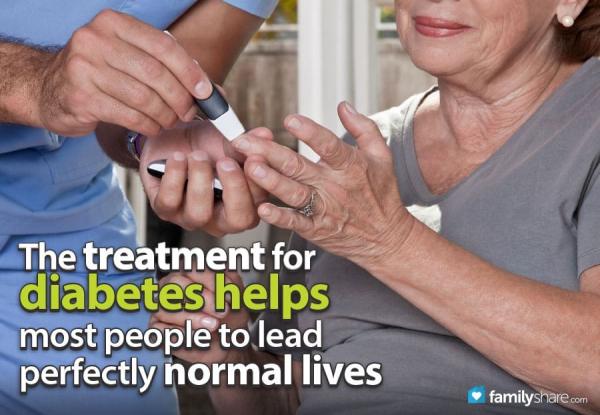
In the United States, approximately 25.8 million people or about 8 percent of the population have diabetes. About one-third of these cases remain undiagnosed. In addition, almost 80 million people are considered prediabetic. You need to know the symptoms of diabetes to protect your health and the overall health of your children.
There are two kinds of diabetes, both with the same principle diagnostic symptom: high blood sugar. Type 1 diabetes is congenital and can occur at almost any age, beginning at birth. This type is often called juvenile diabetes, though adults can be diagnosed, as well. It starts suddenly. Type 2 diabetes is largely related to lifestyle and thus is a symptom of global affluence; we eat richer food and exercise less. It is a gradual disease.
Type 1 diabetes begins when the pancreas ceases to produce enough insulin. Within a few months, it generally stops producing insulin altogether. Symptoms to watch for, especially in your children, include:
Thirst
Untreated diabetics frequently experience unquenchable thirst.
Frequent urination
Not simply as a result of drinking lots of liquids, untreated diabetics will require frequent trips to the bathroom (I figured out our 7-year-old had diabetes when he had to go to the bathroom several times during a single movie).
Nausea
If left untreated, nausea and vomiting will result. This is especially true for people who are drinking soda or other sugary drinks to quench their unquenchable thirst.
Weight loss
Because insulin is required to properly metabolize food, untreated diabetics will lose weight no matter how much they eat. (Don't get any ideas! High blood sugar can kill.)
Type 2 diabetes begins slowly as your body develops resistance to insulin. Oral medications can help restore your body's healthy metabolism. In some type 2 diabetics, the pancreas will ultimately give up producing the extra insulin required- or any insulin at all - requiring them, like type 1 diabetics, to take insulin shots. While rare, cases of adolescents getting type 2 diabetes are increasing. Here are the symptoms to watch:
-
Thirst, frequent urination, nausea, and weight loss, as with type 1 diabetics.
-
Frequent infections, as untreated diabetics will not heal from a scratch or other injury as quickly.
-
Blurred vision may result from untreated diabetes.
-
Tingling or numbness in hands and feet may occur as a result of diabetic neuropathy.
Untreated or poorly treated diabetes can lead to all sorts of complications, up to and including death. Blindness and amputations are common results of poor disease management.
On the other hand, the treatment for diabetes helps most people to lead perfectly normal lives. Many of the complications once believed to be inherent to the disease are proving to be the result of poor management. Those who closely follow the advice of their doctors, testing the blood sugar about 10 times per day and adjusting their medications accordingly, experience few complications from the disease.
If you observe any of the symptoms of diabetes, get tested.

